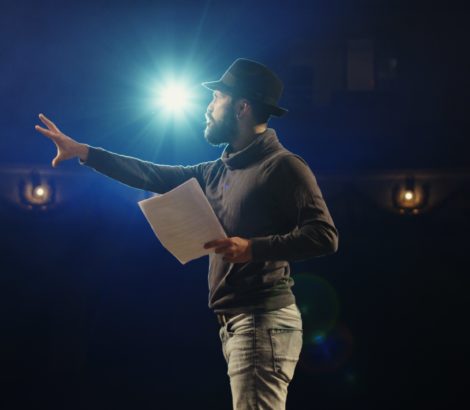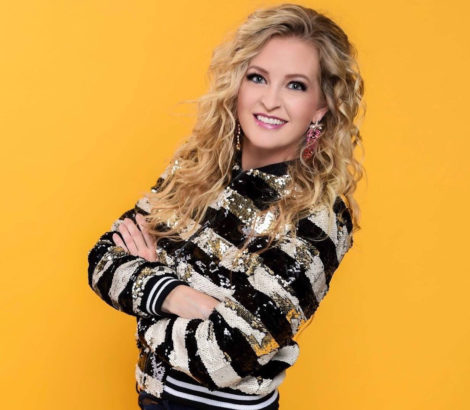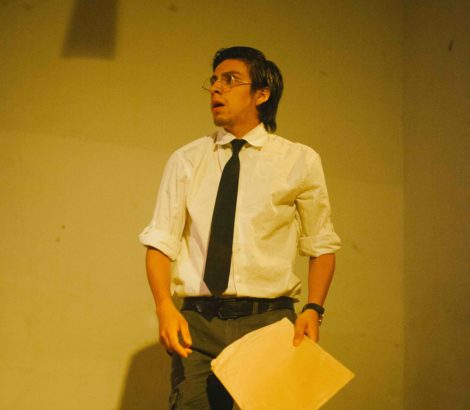How The Five Elements of Story Can Enlighten Your Preparation

Arguably, there are 5 key elements of story. Not all actors are writers, but it’s important for actors to have some understanding of story to help them make the best acting choices for their characters.
I highly recommend that actors have some awareness of the fundamentals of storytelling. Take a screenwriting class, read a book about story structure, google some stuff, ask your screenwriter friends! If you’re familiar with my coaching style, you’ll notice I reference storytelling principles quite often in my lessons. This blog just barely scratches the surface.
CHARACTER
An important quality that must be given to characters (especially the main character) is a flaw, or weakness. Let’s be careful here. It’s really important that we don’t judge the characters we play. Let’s save our strong point of view for the character’s feelings about other characters in the story. Rather than ask “What’s my character’s weakness?” I like to ask “In what ways does my character let her ego get the best of her?” Then I answer, in the voice of the character, with the point of view of the character. For example, if the superficial judgment of the character is something like she’s patronizing, the way that I would talk with the character’s voice and point of view is “If I don’t assume everyone around me has no more intelligence than that of a fourth grader, everyone will slack off and let me down.” Justified behavior, right? Now you can play that character with truth rather than playing an idea.
Every role you approach should be treated as the main character. Hear me out. You’ve heard the saying there are no small parts, right? I’ll use one of my favorite examples. Let’s say your character is WAITRESS and your line is “Are you ready for the check?” — and that’s the only thing we see and hear you do for an entire episode or film. That waitress is still a full-fledged human being with a full life – wants, needs, desires, triggers, point of view, a place she’s coming from, a destination, thinking process, all of it. You still have to make strong choices about all of those things.
SETTING
Where are you and what are you literally doing in the scene? Sticking with the waitress example, you’d be at work (which happens to be in a restaurant) and you are literally asking a patron if they are finished with their dining experience and ready to pay their bill. This is where it’s important to be specific. Are you a waitress at Applebees, or Gary’s Pie Shop, or Le Petit Maison? How long have you worked there? Is it your first day or are you coming up on twenty years? The way you move about the restaurant will be different depending on the specifics. Try not to make general choices about these things. Extremes make for great strong point of view.
To whom are you asking if they’re ready for the check? Someone you think is sexy and maybe have a crush on? Someone who irritates you? A stranger or a regular that you’ve been waiting on for years? You’ll have stronger point of view if you cast someone specific in your mind.
PLOT
Stories should have a beginning, middle and end. So should every scene. Remember this in auditions. Think of it this way: when casting directors are watching your audition, they are kind of watching a little play. They want a full performance. That means you should have a beginning, middle and end of your scene; it should tell a full story. Even if your audition is just a few lines, or even one line, or even no lines — a story can be told with just a look!
So how do we apply this to the work? The scene doesn’t start with the first line of dialogue. Whatever happens that motivates the character to first speak is the beginning of the scene. Read that again. Whatever happens that motivates the first character to speak is the beginning of the scene.
The middle of the scene is what happens in the scene.
The end of the scene is a character being motivated by what happened in the scene to do the next indicated thing. What is the character’s destination now? Having discovered new information, where are you (the character) going now and what are you going to do? You’ve got to make that choice and make it specific. Let it be part of the character’s thinking process in your closing moment.
CONFLICT
Every story has to have conflict. That doesn’t necessarily mean that there’s a brawl. In story, to put it simply, our character wants something and what happens in the story is basically about all of the obstacles they have to overcome to get what they want. Here is where we have to find out our character’s intention. As the character, what do you want? How far are you willing to go to get it? What happens if you don’t get what you want? What are the consequences if you don’t get your way? What’s at stake?
Don’t emotionally prepare on the obstacles, emotionally prepare on what you want and how bad you want it. Then deal with the obstacles or conflict. The character can’t know what’s coming next – so you can’t anticipate the problem. You (as the character) have to want what you want and then deal with the obstacles truthfully.
When we see how far someone is willing to go to get what they want, that’s how character is revealed. It’s a discovery. A story is not about someone who knows who they are – it’s about someone finding out who they are.
RESOLUTION
Every story has a resolution. It’s not always about the character getting what they want, it is often about them getting what they need (usually something they didn’t know they needed). The important thing to remember here is that the result of the character’s arc is that they have had a shift in perspective. They go from a place of not knowing something to knowing it. In other words, in the last scene of the film they know something they didn’t know in the first scene. This can also be applied to audition scenes. Every scene is in the movie or episode for a reason – it’s either moving the story forward (so new information is revealed) or it’s letting us know more about a character (so new information is revealed). So, in every scene, new information is revealed. How does your character receive the information? What does it make them want to do next? In every scene, on some level, there should be a shift. This happens from the listening. But you can prepare in a way to set yourself up for a great discovery by making a choice that the character is expecting the opposite of what happens.
There is so much more we can learn from storytelling that can help our acting work become more nuanced and grounded. Hopefully these five simple insights have opened up a new way for you to look at your work. Like writers, though in a much different way, actors are storytellers. It’s important that we have a comprehensive understanding of what makes up a story and what makes a story compelling. I encourage you to explore your work from that aspect and see what exciting places it takes you!












